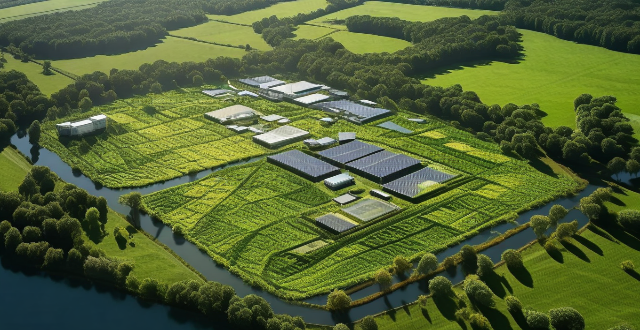Proper insulation is crucial for energy efficiency, providing thermal comfort, reducing energy costs, and alleviating strain on power grids. It also improves indoor air quality by controlling moisture and limiting allergens. Furthermore, it decreases greenhouse gas emissions, supports sustainable living, and offers long-term economic benefits like higher property value. Implementing proper insulation involves sealing air leaks, considering R-values, and focusing on key areas like attics and basements.

Proper Insulation: A Key to Energy Efficiency
In the quest for energy efficiency, proper insulation plays a pivotal role. It is an essential component of any building's envelope, working silently behind the scenes to maintain a comfortable indoor environment while reducing energy consumption. Let's delve into how effective insulation contributes to energy efficiency.
Thermal Comfort and Energy Savings
Proper insulation helps maintain a consistent temperature within a building by reducing heat loss during cold weather and heat gain during hot weather. This means that your heating and cooling systems don't have to work as hard to maintain a comfortable temperature, leading to significant energy savings.
- Reduced Heating Costs: In the winter, insulation prevents warm air from escaping, which means your heater doesn't have to run as often.
- Lowered Cooling Expenses: In the summer, it keeps cool air inside and hot air outside, reducing the need for air conditioning.
Reduction in Peak Loads
By stabilizing indoor temperatures, insulation can also help reduce peak loads on power grids. When many homes and buildings are well-insulated, the collective demand for heating and cooling is lower, alleviating strain on the grid during extreme weather conditions.
Health and Moisture Control
In addition to thermal benefits, proper insulation can contribute to better indoor air quality and healthier living environments. It helps control moisture, preventing mold growth and reducing allergens in the air.
- Moisture Management: Insulation prevents condensation by maintaining a dry interior, which is crucial for avoiding mold and mildew issues.
- Improved Air Quality: By limiting air leakage, insulation reduces the infiltration of pollutants and allergens into your home.
Environmental Impact
When buildings are energy efficient due to proper insulation, there's a knock-on effect on the environment. Lowered energy use translates to reduced greenhouse gas emissions from power plants, contributing to a smaller carbon footprint.
- Decreased Emissions: Less energy consumption leads to fewer emissions from power generation.
- Sustainable Living: Energy-efficient homes support sustainable living practices and conservation efforts.
Long-Term Economic Benefits
Investing in proper insulation not only saves money on monthly utility bills but can also increase the overall value of a property. Well-insulated homes are more attractive to buyers and renters, commanding higher prices and rental rates.
- Higher Resale Value: Homes with excellent insulation are more energy-efficient and therefore more valuable.
- Attractive to Buyers: Energy-conscious homebuyers are on the rise, and they look for properties with high insulation standards.
Implementing Proper Insulation
To achieve these benefits, it's important to ensure that insulation is installed correctly and to the appropriate levels for your climate zone. This may involve sealing air leaks, upgrading existing insulation, or using advanced insulating materials like spray foam or cellulose.
Key Steps for Proper Insulation Include:
- Sealing Gaps: Sealing gaps around windows, doors, and other penetrations to prevent air leakage.
- R-Value Consideration: Selecting the right type and thickness of insulation based on its R-value, which measures its thermal resistance.
- Attic and Basement Insulation: Paying special attention to these areas since they are common sources of heat loss/gain.
- Roof and Wall Insulation: Ensuring these structures are adequately insulated to maintain comfort and efficiency.
In conclusion, proper insulation is a fundamental aspect of energy efficiency in buildings. It offers numerous benefits ranging from direct energy savings to improved health and environmental sustainability. By prioritizing insulation in construction and renovation projects, we can create more comfortable, healthy, and energy-efficient living spaces for years to come.